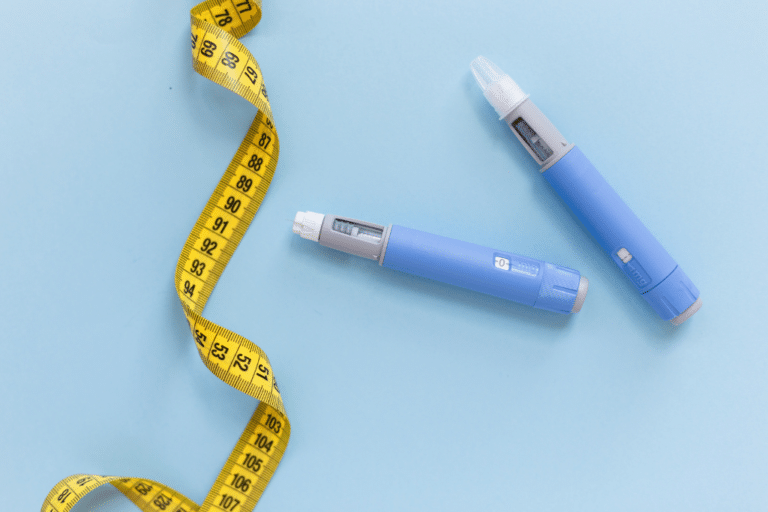Good heart health.
Janet considered herself an overall healthy individual. She ate a well-balanced diet, with plenty of fruits and vegetables, and led an active lifestyle. She walked several times per week with her neighbor and was an avid gardener. She’d never experienced any real health problems (beyond the aggravations that perimenopause brought), and her hormone issues had all but gone away since she was now in menopause.
That’s why when she found herself diagnosed with a blockage in one of her arteries, she was shocked.
Unfortunately, the situation above is very common. Many women don’t realize that heart disease is the leading cause of death for women in the United States, especially after menopause. Sometimes thought of as a “man’s disease”, almost as many women as men die each year of heart disease in the United States.
Heart disease is known as the “silent killer,” since it may not be diagnosed until you have other symptoms or emergencies such as:
- Heart attack
- Stroke
- Irregular heartbeat (Don’t panic…this can also be a hormone imbalance!)
- Heart failure
Why does this happen to women, especially at an increased age?
It all stems from declining estrogen. As we approach menopause (and beyond), the estrogen levels in our body significantly decrease, which then begins to affect our cardiovascular.
[bctt tweet=”Heart disease in menopausal women all stems from declining estrogen. #heartdisease #estrogen #hearthealth #tipsforhearthealth #perimenopause #menopause #hormones #DrAnnaGarrett #AnnaGarrettAsheville” username=”DrAnnaGarrett”]
How Declining Hormones Affect Your Heart Health
- High blood pressure- lower estrogen levels cause your blood vessels to become less elastic. When this happens your blood pressure starts to rise, resulting in hypertension.
- High cholesterol- less estrogen can also cause negative changes in your cholesterol. Your good cholesterol (HDL) may decrease, and your bad cholesterol (LDL) and triglycerides may increase. You can read more about cholesterol and menopause here.
- Diabetes- as women go through menopause, their cells may become more resistant to insulin. Insulin is the hormone needed for your body to change blood sugars and starches into energy. Having diabetes puts you at a higher risk for heart disease.
- Atrial fibrillation- women may see an increase in abnormal heart rhythms such as atrial fibrillation or PVCs (palpitations) around menopause. The change in hormones can also cause faster heart rates. Atrial fibrillation can also be a result of high blood pressure.
- Weight gain- menopause often causes a woman’s metabolism to slow down. As a result, women are more likely to gain weight. This puts stress on your heart and increases your risk of heart disease and insulin resistance.
10 Ways to Ensure Good Heart Health in Perimenopause (and beyond)
The good news is about 80% of heart disease is preventable. Starting healthy habits in perimenopause will pave the way for future optimal heart health. The following list contains ten ways to ensure heart health now and in the future.
1.) Know your numbers.
One of the most effective ways to prevent heart disease is to know important numbers for your heart health. Aim for a goal for blood pressure of less than 130/80.
2.) Keep your cholesterol in the Goldilocks position.
Healthy, but not too high or low. You can read more about that here.
If your health care professional is not checking your levels routinely, make sure that they do. Becoming number savvy and sticking to these goals will greatly decrease your risk of heart disease.
3.) Get a full thyroid panel.
Hypothyroidism is one of the leading causes of high cholesterol. People with an underactive thyroid often have increased levels of total cholesterol and LDL cholesterol and may have elevated triglyceride levels as well.
Thyroid medication can significantly improve lipid profiles. A study in newly diagnosed hypothyroid patients found that total cholesterol and LDL cholesterol levels decreased after T4 treatment. Those with higher TSH levels (indicating a greater need for thyroid hormone and a greater degree of hypothyroidism) at baseline saw a more dramatic reduction in cholesterol levels with T4 therapy.
4.) Eat a heart-healthy diet.
Choose foods low in fat and high in fiber, such as those found on the Mediterranean diet.
5.) Add Vitamin K2 to your supplement regimen (MK-7/MK-4 forms).
Sudden death from heart attack is even much more highly correlated with calcification of the aorta than with cholesterol. Vitamin K2 is prevalent mostly in foods that many people shy away from due to nutritional myths. Foods such as butter (but only if it’s grass-fed), cheeses, fatty red meats (e.g. ribeye steak), liver, and egg yolks contain K2. The food containing the highest amount of Vitamin K2 is a highly fermented soy food called natto, which very few people can tolerate given its strong odor and flavor.
6.) Control your blood sugar.
Diabetes causes inflammation and is an independent risk factor for heart disease. A low glycemic index diet can help as can the supplements biotin, berberine, chromium, alpha-lipoic acid. Exercise regularly to make sure your muscles are using glucose!
7.) Maintain a healthy weight.
Added weight puts extra stress on your heart.
8.) Manage your stress levels
Reducing your stress is critical to keeping cortisol under control. Find healthy ways to cope with stress, such as yoga or meditation.
9.) Maintain healthy levels of estrogen.
Researchers analyzed data from ELITE (Early Versus Late Intervention Trial With Estrogen), which studied the cardiovascular health of 643 healthy women who were in menopause for less than six years or more than 10 years. Participants received either a daily oral dose of estradiol or a placebo. Every six months for five years, women had ultrasounds of their carotid arteries.
The research focused on fatty deposits that had accumulated on the walls of neck arteries. During early menopause, estradiol therapy reduced the progression of fatty deposits by more than half of that seen in the placebo group.
Among women in late menopause, there was no significant difference in lipid deposits between those taking estradiol and those taking a placebo.
There is currently no recommendation to use estrogen for the express purpose of preventing cardiovascular disease.
10.) Eat oily fish 3 times a week or take a fish oil supplement.
This can help reduce inflammation and prevent the buildup of plaque in arteries.
These are just a few of the tips for creating excellent heart health. The best time to start planning for a healthy heart is NOW. Adopting a heart-healthy lifestyle and closing any nutritional gaps sooner rather than later will prevent you from encountering risk in the future. YOU (and your heart) are worth it!
Dr. Anna Garrett is a menopause expert and Doctor of Pharmacy. She helps women who are struggling with symptoms of perimenopause and menopause find natural hormone balancing solutions so they can rock their mojo through midlife and beyond. Dr. Anna is the author of Perimenopause: The Savvy Sister’s Guide to Hormone Harmony. Order your copy at www.perimenopausebook.com.
Dr. Anna is available for 1-1 consultation. Find out more at www.drannagarrett.com/lets-




